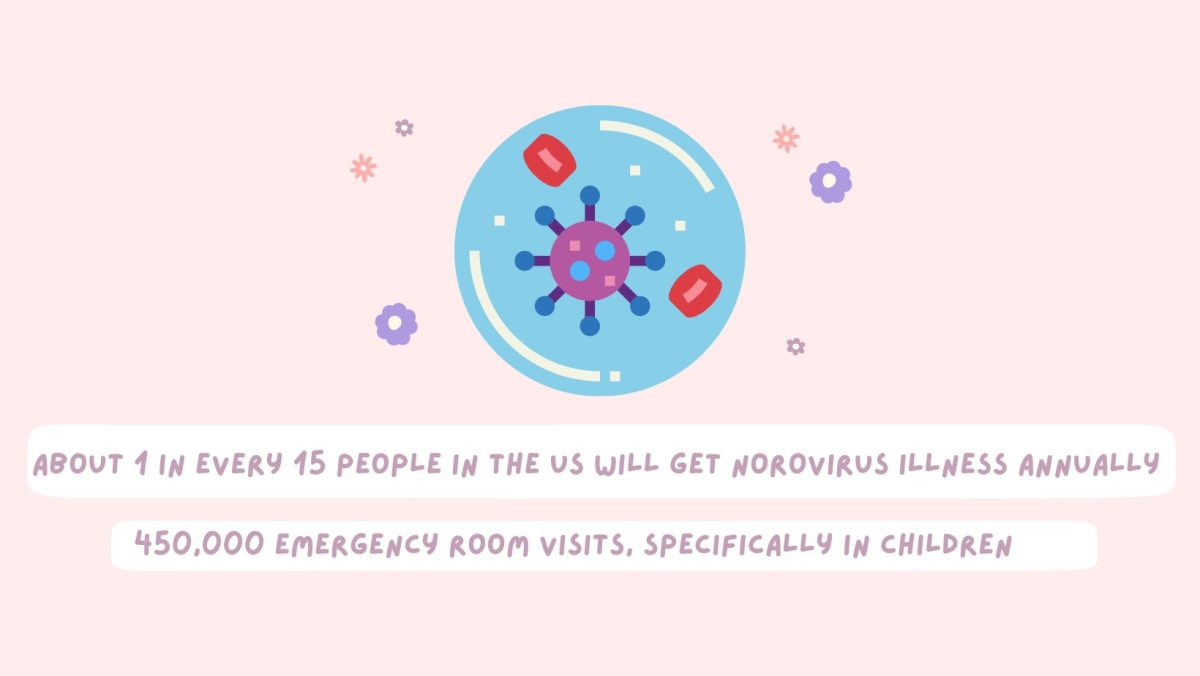Cases of norovirus, a hyper-contagious stomach bug, are on the rise in the U.S, particularly in the northeast. While norovirus is common this time of year across the country, there has been an abnormal spike in cases this year in particular.
The northeast–particularly New York, Pennsylvania, Connecticut and New Jersey–have experienced the highest positivity rate for the norovirus strain. According to recent data from the U.S. Centers For Disease Control and Prevention, 14% of swab tests in the northeast region came back positive for norovirus at the beginning of February. That number was up from approximately 12% two weeks earlier and just 4% in November before the epidemic broke out earlier in February.
Cases of the norovirus commonly spike in the months of February and March because individuals are kept in close proximity to one another due to cold winter weather. The most common ways of catching the norovirus include but are not limited to: contaminated foods and liquids, touching tainted surfaces and interacting with people infected with the virus.
Jasmine Schiffman ’25 contracted the norovirus earlier in February.
“I was at a BBYO convention and literally everyone got the stomach bug,” Schiffman said. “It could have been from the food we were eating, but it might have also been because we were all really close to each other. We consumed all the pepto bismol in the health center.”
Once one person gets the norovirus, it can spread very easily and stay in a person’s body for weeks. According to the New York Post, it only takes a few particles of the virus to make someone sick, resulting in symptoms of dehydration, intense stomach pain, vomiting and diarrhea.
Jocelyn Connors ’26 experienced the painful symptoms of stomach pain and nausea, leading to severe dehydration.
“I was feeling really nauseous on the drive down to visit my brother at the University of South Carolina, and I originally just blamed it on my dad’s crazy driving,” Connors said. “I ended up throwing up so my family and I stopped at a restaurant to get some food to try and make me feel better. I ended up fainting in the bathroom because I was so dehydrated and I honestly never felt that sick in my life.”
Norovirus is very common among young children and teenagers, including Staples students, which has led to many schools being shut down briefly as a result of the outbreak.
According to an article from PBS.org, Irving Primary School in Middlesex County, New Jersey closed because of an intense norovirus outbreak.
Dr. Alfred Sacchetti from Virtua Our Lady of Lourdes Hospital says that the best way to prevent outbreaks of the virus is to have children wash their hands with soap and water, instead of simply relying on purell.
“Purel and the alcohol-based stuff doesn’t get through the envelope of the virus, and it’s still contagious on your hands,” Sacchetti told PBS. “Soap and water is the only thing that’ll really protect you from this.”
While there is no specific treatment for norovirus, individuals who have been infected should drink plenty of water, get lots of rest and wash fruits and vegetables thoroughly to prevent passing the sickness through food. In addition to this, students who are infected should not come to school in order to prevent the spread of norovirus considering how infectious it is.














































